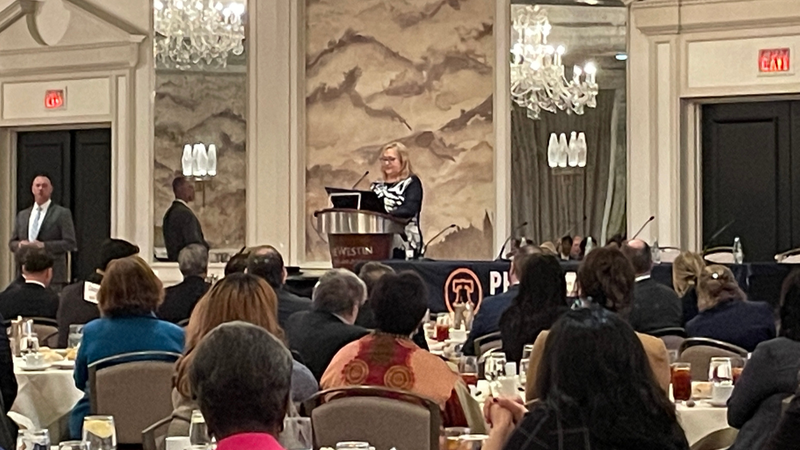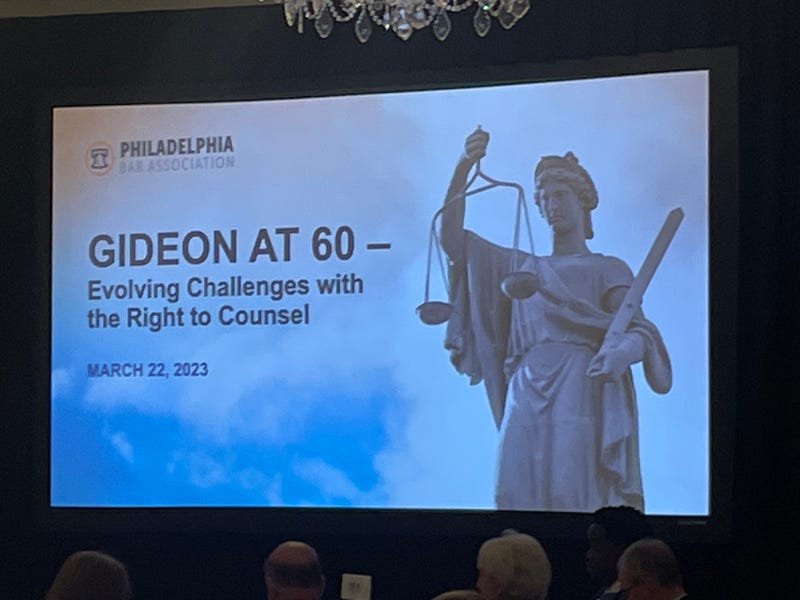
PHILADELPHIA (KYW Newsradio) — The Supreme Court’s 1963 ruling in Gideon v. Wainwright established that the Sixth Amendment’s guarantee of right to counsel in criminal cases extends to felony defendants in state courts. The legal system in the commonwealth has made some strides in fulfilling the promise of the Gideon ruling, and work is still being done to address the right to counsel in both the criminal and civil arenas.

During her comments at a Philadelphia Bar Association symposium on Wednesday, Supreme Court of Pennsylvania Chief Justice Debra Todd quoted Tom Saylor, former chief justice and associate justice:
“One of the measures of a just society is its degree of concern for the less fortunate among it. And one of the values which defines the legal profession’s basic and traditional responsibilities is an obligation to ensure the adequate distribution of legal services.”
The Gideon decision changed the landscape for criminal defense from that point forward, but there are still major challenges. Public defenders, for example, are limited in the amount of time they have and in the amount of pay and resources they receive.
Pennsylvania is one of only two states in the nation that does not provide state funding for criminal defense services. Gov. Josh Shapiro says, with his new budget, that’s no longer the case.
In court, to get to the truth, there must always be a fair fight, he said. “Under my budget, for the first time ever, the Pennsylvania Commission on Crime and Delinquency would invest at least $50 million in county public defenders’ offices over the next five years."
It has been the sole responsibility of counties to fund indigent defense without any help from the commonwealth. It created an unlevel playing field; access to a good public defense depended upon where a defendant lived.
The budget calls for $10 million in the first year.
“My administration will continue to evaluate this process and future budgets to see how the system is working, and what it needs to work effectively. We obviously need to do more to build equity in our criminal justice system, but it's critically important that we start here, with sustained dedicated funding for indigent defense,” Shapiro said.
The challenge of convincing new law graduates to pursue careers in public defense is also a hurdle, said Mark Zucker, chair of the Philadelphia Bar Association.
“It's such a critical role, because without representation and really fine representation, there isn't the balance in any litigation in any prosecution. And without that balance, criminal defendants are left to suffer as a result. So yeah, I think it's a difficult sell for someone who faces a low salary, high pressure and a stressful position. But it pays dividends in terms of the service being provided to society,” said Zucker.
In the commonwealth, 54% of criminal defendants are represented by public defenders in the state. On another note, Zucker says they are also addressing what’s become known as “civil Gideon,” which is the attempt to expand the right to counsel, in the civil realm. He says the Bar Association has already made great strides in the landlord-tenant arena, convincing City Council that it was more costly to the city if tenants were evicted, because it would have to pay for services to support them.

